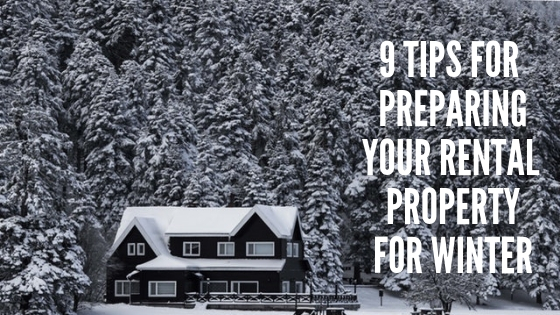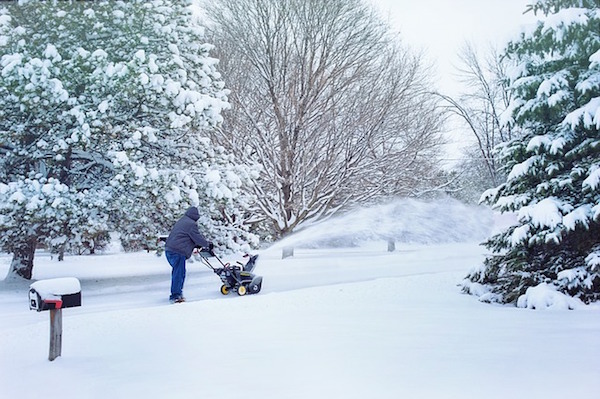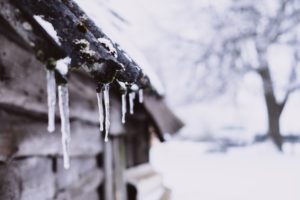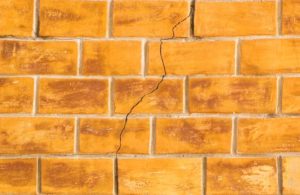9 Tips for Preparing Your Rental Property for Winter

Winter is the most important time for property maintenance! Combined with precipitation and cold winds, sustained low temperatures can damage your home.
To avoid such problems, it is essential that you prepare your rental property for the winter season. This will save you time and money on roofing, plumbing, and other repairs come spring.
9 Things You Need to Do Now to Prepare for Winter
1. Check your safety alarms
Regularly inspecting fire and carbon monoxide alarms is crucial as winter approaches. Sadly, it’s one thing that many landlords often forget to do or fail to have their tenants do.
For added security, make sure to remind your tenants to check the functionality of their alarm systems during the winter months.
This is particularly crucial when it comes to carbon monoxide poisoning. In Denver, it’s common for tenants to keep their doors and windows shut tight throughout the entire winter season. This makes the detectors more important than ever due to the absence of circulating air throughout the property.
2. Plan for snow removal
Landlords have their own way of handling their snow removal. You can choose to employ a professional snow removal service, take care of it yourself or you can ask your tenants to take care of it.
Whichever way you handle it, planning for snow removal beforehand is important. This way, everyone is aware of what their duties are when the time comes.

3. Conduct a window and door inspection
Another common problem during the winter season is air leaks. This can result in drafts and make your heating system inefficient. As a result, raising the cost of your energy unit.
A few ways your property may be leaking air is if you have gaps, torn weather stripping, or loose caulking in the doors and windows of your home.
Making sure your property is well insulated and warm will improve the comfort of your tenants. In addition, it will save them money on their heating bill!
4. Care for your A/C and heating systems
In Denver, we experience a ton of snow. As a result, you should take precautions to make sure your HVAC unit is well maintained. If you don’t, it can cost you a lot in repairs.
Here are a few protective measures to keep your A/C in top working condition during the winter.
Clean your A/C unit
- The last thing you want during the cold season is a clogged unit. Use a broom to remove any debris surrounding the air conditioning unit. Then use a hose to wash off bird droppings, dust and dirt.
Add extra insulation
- Use foam insulation to cover any exposed pipes and wiring.
Cover your A/C unit
- You can find covers made specifically for air conditioners at home improvement stores. Placing a plastic cover or waterproof vinyl over an air conditioner has many benefits such as insulation and damage prevention.
5. Care for your trees
Just like snow boots keep you safe and warm during the cold season, trees require a similar treatment. Cold temperatures, salt used on roads, and wildlife can all damage your trees and shrubs in the winter.
If you have trees on your property, here are some tips to keep them healthy as winter settles in:
- Provide nutrition to sustain your trees. Feed your trees with fertilizer before the ground freezes.
- Blanket trees with mulch to help roots retain moisture and stay warm.
- Prune your trees after the leaves have fallen to minimize fallen branches.
- Brace your trees to give them extra support. Your certified arborist can check which trees require to be fortified with cables. This is especially important for the trees that hang over your home or car.
6. Inspect your roof
A roof that is in good condition is critically important for the safety of your home.
To make sure that you are in the clear for winter, you can check the state of your roof yourself or you could hire a qualified roofing contractor. The following are telltale signs your roof needs inspection:
- Breaking, cracking or missing shingles
- Roof Leaks
- A damp attic
- Ice dams in your gutters
- Bending or drooping roof
- Cracking, leaning or missing mortar
In Denver we experience a lot of snow, so make sure to check your roof for any problems before the first snowfall. Roof leaks are quite common in the winter.

7. Watch your pipes
When temperatures plummet, the risk of your pipes freezing and bursting are high. As a matter of fact, one of the main causes of property damage is bursting water pipes. A mere 1/8-inch crack can inundate your home with 250 gallons of water daily.
You can prevent this damage by winterizing exterior plumbing and pipes in unheated parts of your property.
8. Check for cracks and openings
Check the perimeter of your property for cracks, crevices and holes. Why? Because critters might be looking for a winter home. A ¼-inch gap can be big enough for a mouse to slip through.
You should make sure to look for cracks in any pipes entering your property and seal them. Not to mention checking for gaps under your doors!

9. Service boilers/furnace
If you can get your boiler serviced before winter strikes, then you can identify and resolve any problems with it in a timely fashion.
You could service it yourself or you could hire one of the numerous service companies available. Making sure your furnace or boiler is in top condition could save you from costly emergency breakdowns during the winter.
We know how important it is for you to ensure that your property is always in good condition. With these 9 tips, you’ll help keep your property running smoothly and your tenants happy. If you find these guidelines overwhelming, you might want to look into hiring a Property Manager.
